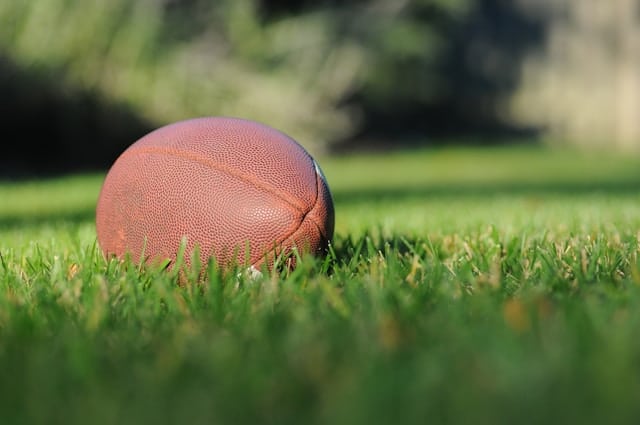With new name, image, and likeness (NIL) rules reshaping college athletics, universities are being met with challenges they have never seen.
A recent lawsuit filed by Georgia quarterback Jaden Rashada against Florida football coach Billy Napier and other involved parties over a botched NIL deal highlights one contentious issue in this space, shedding light on the intricate dynamics of athlete compensation and the regulatory challenges faced by universities.
What Caused the Lawsuit?
Initially committed to the University of Miami with a lucrative $9.5 million NIL agreement, Rashada was persuaded to switch his commitment to the University of Florida (UF) under the promise of an even more substantial $13.85 million NIL deal. However, as the timeline unfolded, promises made by Hugh Hathcock, a prominent UF donor, and endorsed by Napier, failed to materialize.
Key developments include Hathcock attributing the non-payment of the promised $500,000 signing bonus and other financial commitments to the sale of his company, passing responsibility to the Gator Collective tasked with managing NIL agreements. A “collective” is an organization typically formed by prominent alumni and supporters of universities, pooling financial contributions to facilitate NIL opportunities for student-athletes. These collectives operate independently from universities, aiming to monetize athletes’ brands through various activities such as securing endorsements and organizing fan interactions.
Following the financial shortfall, Rashada’s NIL contract was abruptly terminated by the Gator Collective. Allegations of improper recruitment conduct, including direct involvement by Hathcock during Rashada’s recruitment process, further complicate the legal landscape, potentially violating NCAA regulations governing fair play and ethical recruitment practices.
Rashada’s Claims Against Napier & UF
Filed in the U.S. District Court in Pensacola, Rashada’s lawsuit avoids directly implicating the University of Florida or its Athletic Association. Instead, it focuses on the actions of individual figures like Napier and Hathcock. Rashada claims they fraudulently promised him $13.85 million, including a substantial signing bonus, to secure his commitment, yet only a fraction of this amount was paid, constituting breach of contract. The lawsuit also details how Hathcock, Napier, and Marcus Castro-Walker pressured Rashada into committing to UF with assurances of financial security that were ultimately unfulfilled. Rashada further asserts that the defendants never intended to honor their financial commitments, implying a deliberate scheme to induce his commitment without the means or intent to follow through on the promised compensation.
In response to the lawsuit, the UF Athletic Association has distanced itself, providing personal legal representation for Coach Napier. As of the latest updates, neither Napier nor Hathcock has issued public statements addressing the allegations against them.
Florida NIL Laws and Regulations
Florida, an early adopter of NIL legislation, enacted its initial law on June 12, 2020, which took effect on July 1, 2021. Governor Ron DeSantis later amended the state’s NIL law on February 16, 2023, to refine the roles of universities and third parties in managing NIL agreements. The amendment included key provisions such as:
- University Involvement: Prohibits direct payments to players or recruits and bars the use of NIL deals as inducements for recruitment or retention, aligning with NCAA regulations.
- Facilitation of Deals: Allows coaches and teams to assist in facilitating NIL agreements without engaging in direct financial transactions, enhancing support for athletes.
- Athletic Associations’ Role: Enables university athletic associations to play a more active role in aiding athletes with NIL deals, previously handled by external agents or collectives.
- Liability Protections: Provides safeguards for coaches and teams from liability related to decisions impacting athletes’ NIL agreements, such as disciplinary actions.
Additionally, to ensure transparency and compliance with NIL regulations, Florida universities must conduct financial literacy workshops biannually for athletes. Athletes are required to disclose all NIL contracts to their institutions, and these agreements cannot extend beyond their collegiate sports careers.
Implications for the Future
The Jaden Rashada lawsuit underscores the complexities and pitfalls inherent in NIL deals within collegiate sports. It serves as a pivotal case in navigating the evolving landscape of athlete compensation and recruitment integrity. This legal battle could set precedents for future NIL-related litigations, influencing how universities, coaches, and donors navigate their roles and responsibilities in managing NIL agreements.
Conclusion
As collegiate athletics continue to grapple with the implications of NIL legislation, cases like Jaden Rashada’s lawsuit against UF coach Billy Napier and others highlight the urgent need for clarity, transparency, and ethical standards in NIL agreements. The outcome of this lawsuit will likely shape future policies and practices governing athlete compensation, aiming to strike a balance between opportunity and accountability in the realm of college sports.




